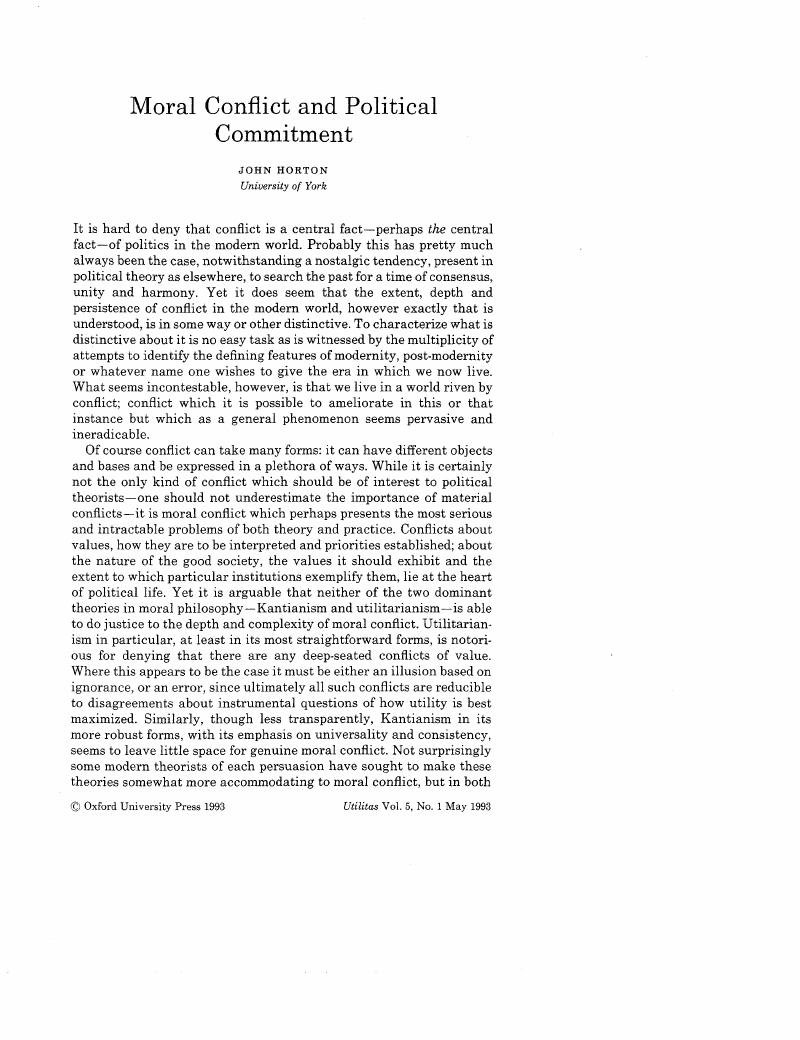No CrossRef data available.
Article contents
Moral Conflict and Political Commitment
Published online by Cambridge University Press: 26 January 2009
Abstract

- Type
- Review Article
- Information
- Copyright
- Copyright © Cambridge University Press 1993
References
1 See Williams, B., Ethics and the Limits of Philosophy, London, 1985Google Scholar, esp. Chs. 4–6.
2 Lukes, S., Moral Conflict and Politics, Oxford, 1991Google Scholar. All page references in the text are to this volume.
3 Rawls, J., A Theory of Justice, Oxford, 1971, p. 29.Google Scholar
4 See Feyerabend, P. K., Against Method, London, 1975Google Scholar, Ch. 16.
5 Lukes, S., Power: A Radical View, London, 1974.CrossRefGoogle Scholar
6 Stocker, M., Plural and Conflicting Values, Oxford, 1990.Google Scholar
7 See Nussbaum, M., The Fragility of Goodness, Cambridge, 1986.Google Scholar
8 MacIntyre, A., After Virtue, London, 1981Google Scholar, and Whose Justice? Which Rationality?, London, 1988.Google Scholar
9 Lukes, S., Marxism and Morality, Oxford, 1985.Google Scholar
10 This is not to deny the worth of such scholarly interpretation of Marx as of any other thinker. However, just as Marxists are anxious to judge capitalism by its historical record rather than as a theoretical ideal, so too should Marxism be judged.


